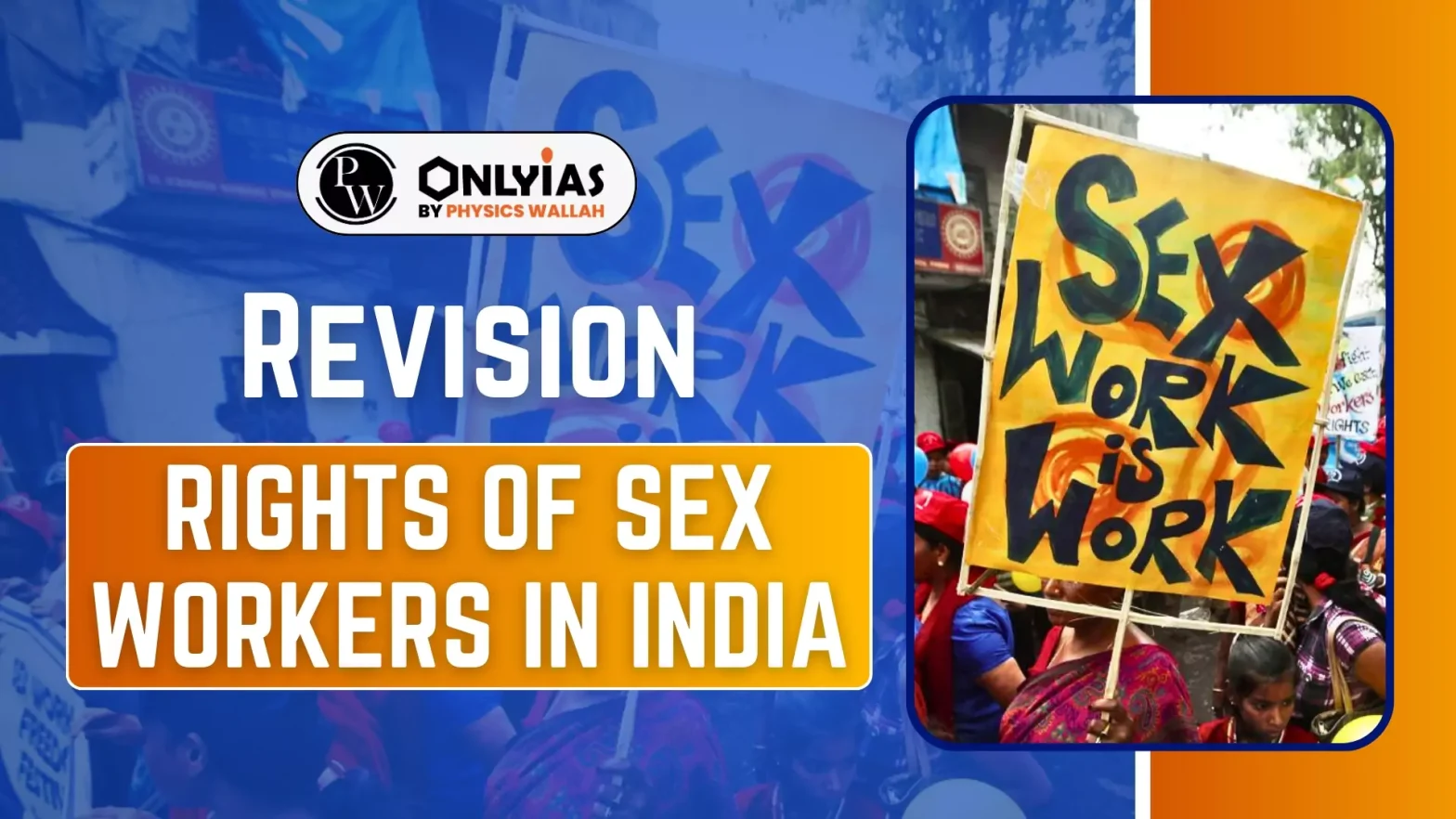Supreme Court Recognition
The Supreme Court has recognized sex work as a profession, affirming sex workers’ rights to dignity and equal protection under Article 142 of the Constitution.
Article 142 of the Indian Constitution empowers the Supreme Court to pass any order necessary for doing complete justice in any cause or matter before it. This article grants the court wide-ranging authority to ensure justice is served, even if such orders are not specifically provided for in the Constitution or laws.
Supreme Court Guidelines
- Non-Interference: Police should not interfere with or criminalise consenting adult sex workers.
- Avoidance of Victimization: Sex workers should not face penalties or harassment during brothel raids; while voluntary sex work is legal, brothel operation is not.
- Right to Dignity: The right to dignity is affirmed under Article 21 of the Constitution for all individuals, including sex workers.
- Family Integrity: Children of sex workers should not be separated from their mothers solely due to their profession.
- Trafficking Presumption: Minors found in brothels should not automatically be presumed to be trafficked.
- Equal Treatment: Police must not discriminate against sex workers filing criminal complaints, especially in cases of sexual offences.
- Identity Protection: Media must protect the identities of sex workers during legal operations.
Enroll now for UPSC Online Course
Way Forward
- Combating Violence: The Justice Verma Committee (2016) suggests establishing dedicated police units for handling complaints from sex workers.
- Healthcare Access: Ensure access to healthcare services, including STD screenings and preventive measures, with culturally sensitive services available in brothels.
- Destigmatization: The 22nd Law Commission of India (2018) recommends integrating sex work into anti-trafficking training to combat misconceptions and discrimination.
![]() 23 Sep 2024
23 Sep 2024
